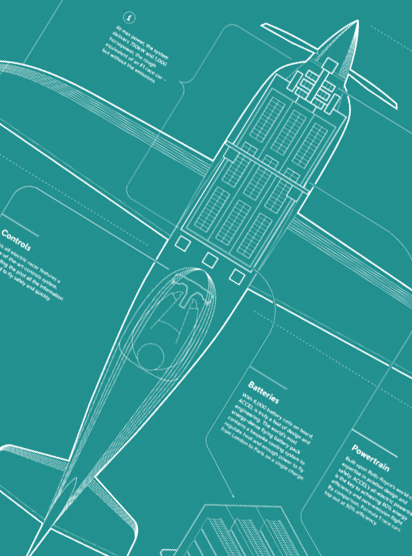
Building
a Greener and More Sustainable Future
IBGAA is committed to improving sustainability practices, raising environmental standards, and supporting an industry-wide reduction in carbon emissions. In order to build a greener and more sustainable future, we are continuously driving an innovative and actionable sustainability strategy forward for the good of the environment, our members, and the wider business and general aviation community.
Business Aviation
Commitment to
Climate Change
IBGAA is a proud member of a global community. We therefore have a responsibility to play our part in reducing aviation emissions, lessening our environmental impact, and achieving industry-wide sustainability goals, as mapped out by the International Business Aviation Council (IBAC) and General Aviation Manufacturers Association (GAMA) in their ‘Business Aviation Commitment on Climate Change’ (BACCC).
Business and general aviation creates social and economic benefits. It drives development and employment, strengthens communities, improves business productivity, brings people together, and connects markets in a globalised world. Despite the positive impact these benefits have, they also come with at an environmental cost – a cost that our industry must balance by taking responsibility for the alleviation of climate change.
Renewed Commitment and More Ambitious Goals
In 2021, industry leaders renewed their commitment to protecting the environment. The Business Aviation Commitment on Climate Change was updated with bold commitments to reduce carbon emissions through three primary objectives:
- Achieve net-zero carbon emissions by 2050
- Continue to improve fuel efficiency by an average of 2% per year from 2020 to 2030; and
- Maintain carbon-neutral growth from 2020 onwards.
These objectives will be achieved through the following pathways:
- Investment in new aircraft technology that includes Sustainable Aviation Fuel (SAF)
- Flying using more efficient operations
- Building and using an efficient infrastructure
- The use of effective global market-based measures
Since the introduction of the BACCC programme in 2009, these targets and pathways have formed the foundation of the industry’s commitment to reducing its overall environmental impact, as well as its wider sustainability efforts.
Significant progress continues to be made towards meeting these climate-change goals. To find out more about the BACCC programme’s progress, CLICK HERE.

CURRENT TECHNOLOGIES
Sustainable
Aviation Fuel
As a national representative association, IBGAA is dedicated to reducing greenhouse gas emissions produced by Irish business and general aircraft. As an engaged supporter of the sustainable aviation fuel (SAF) initiative and, consequently, an active advocate of the research, development, production, and use of SAF, we will ensure the Irish business and general aviation community plays its part in achieving industry-wide carbon-neutral growth.
The SAF initiative was established by a coalition of international aviation organisations, including EBAA, IBAC, GAMA, NATA, and NBAA, to address a knowledge gap on the availability and safety of SAF and, subsequently, facilitate the proliferation of alternative jet fuels at all logical touchpoints: manufacturers, ground handlers and operators, at regional, national and international levels.
IBGAA will continue to collaborate with and advocate on behalf of the SAF initiative as it promotes investment in and development of innovative products, procedures, and policies designed to consistently decrease emissions and reduce the industry’s overall environmental footprint. In doing so, we will also champion the advancement of the SAF initiative’s four pillars on the island of Ireland:
- More efficient operations
- Market-based measures
- Continuing infrastructure improvements
- Technology, including the development of alternative aircraft fuels
FUTURE TECHNOLOGIES
Electric
Aircraft

Electric and hybrid aircraft are driving a transformational shift in international aviation, and these technologies have the potential to drastically reduce fossil-fuel consumption and direct carbon emissions, while also helping companies to significantly cut fuel and maintenance costs.
As a forward-thinking, future-focused organisation, IBGAA actively monitors and collects up-to-date data, insights and information relating to electric aircraft and the extensive research/development, rapid innovation, and technological advancements taking place across the industry.
The development and innovation of electric propulsion systems and battery technology are key focus points in the transition to hybrid and, eventually, fully electric aircraft. Widespread collaboration and knowledge-sharing between representative associations and manufacturers, governments and regulatory bodies, and every sector of the aviation industry as a whole, from business to general to commercial, are vital if we are to continue making sustainable progress in this area.
For access to useful industry resources and downloadable content on electric and hybrid aircraft, CLICK HERE.
